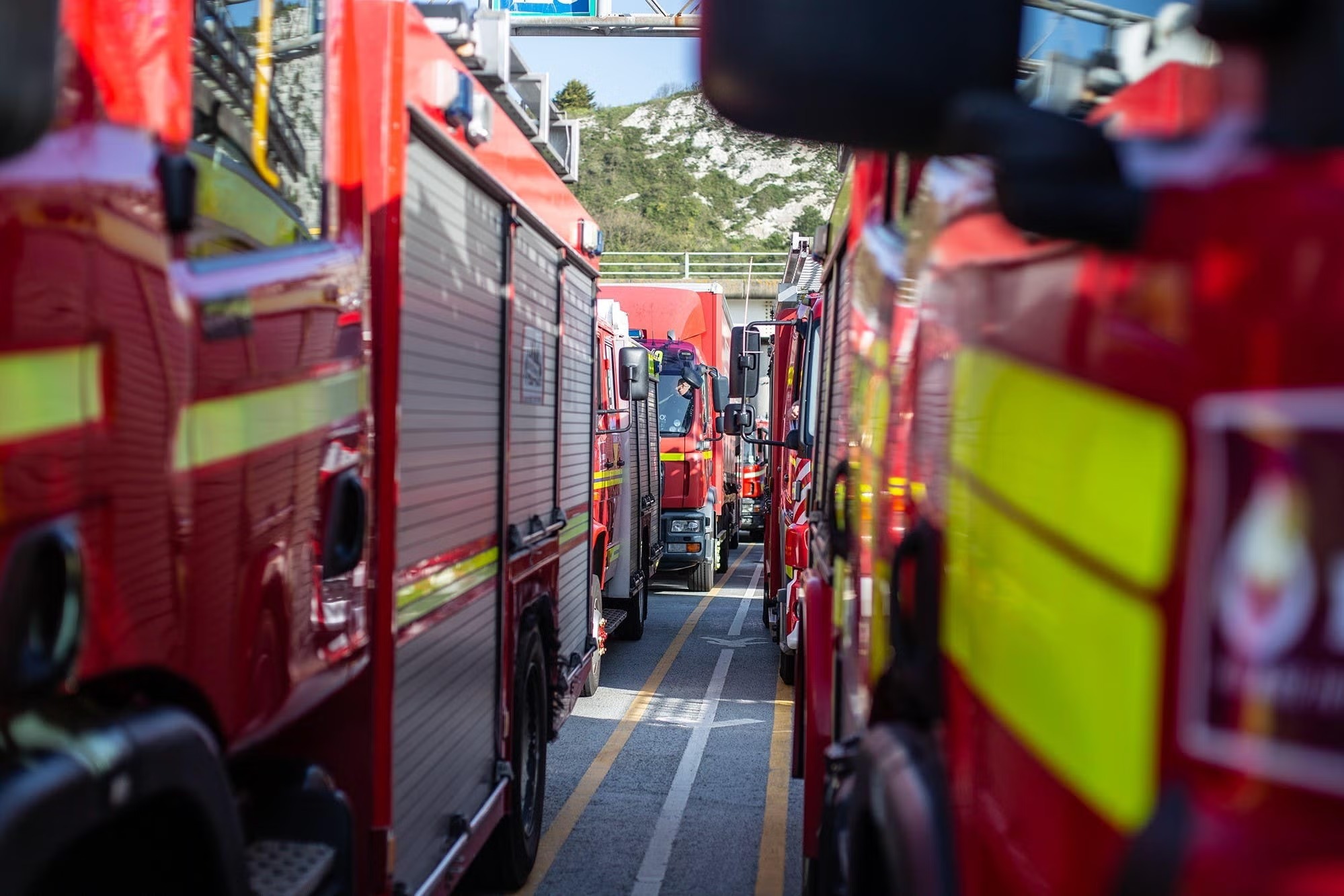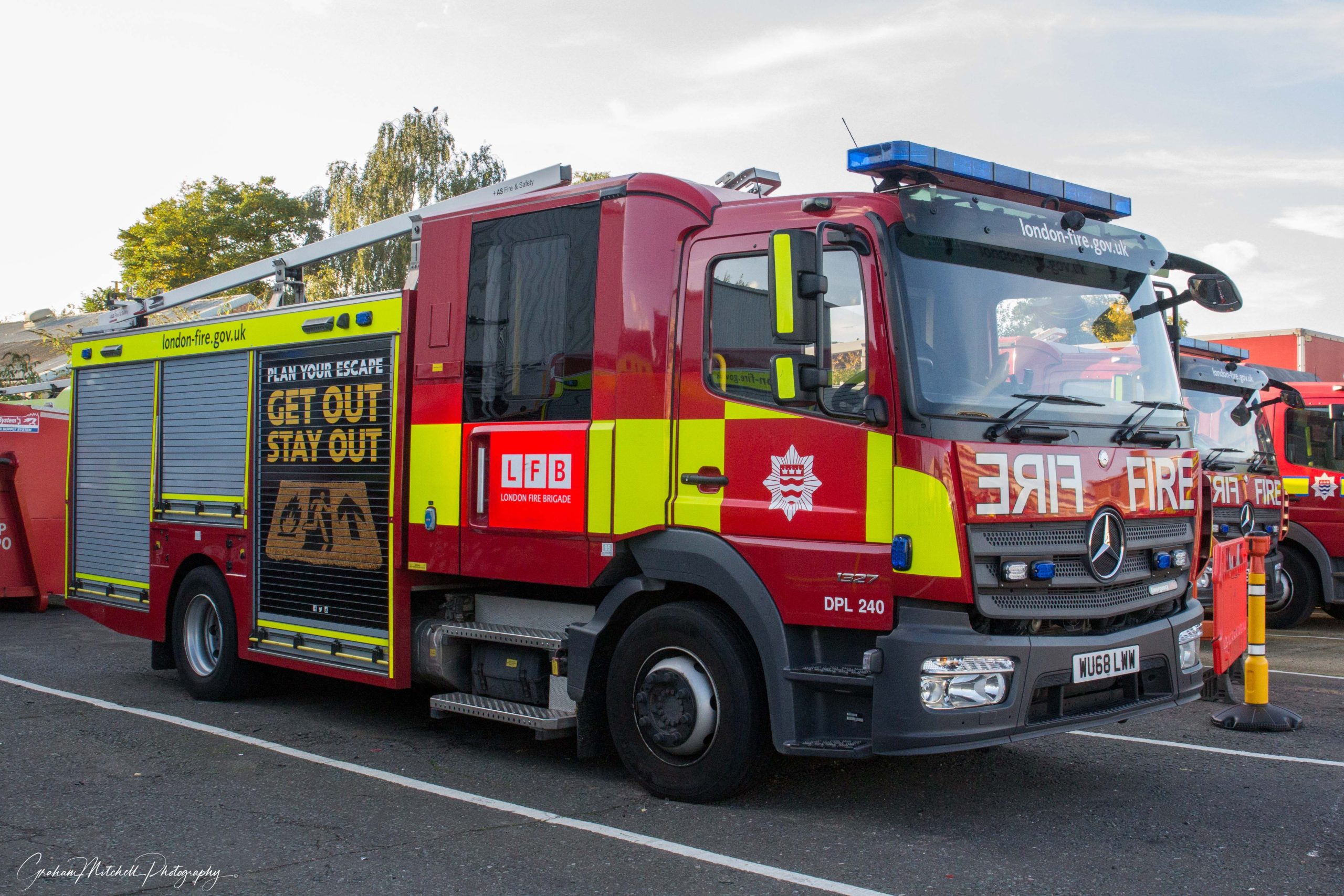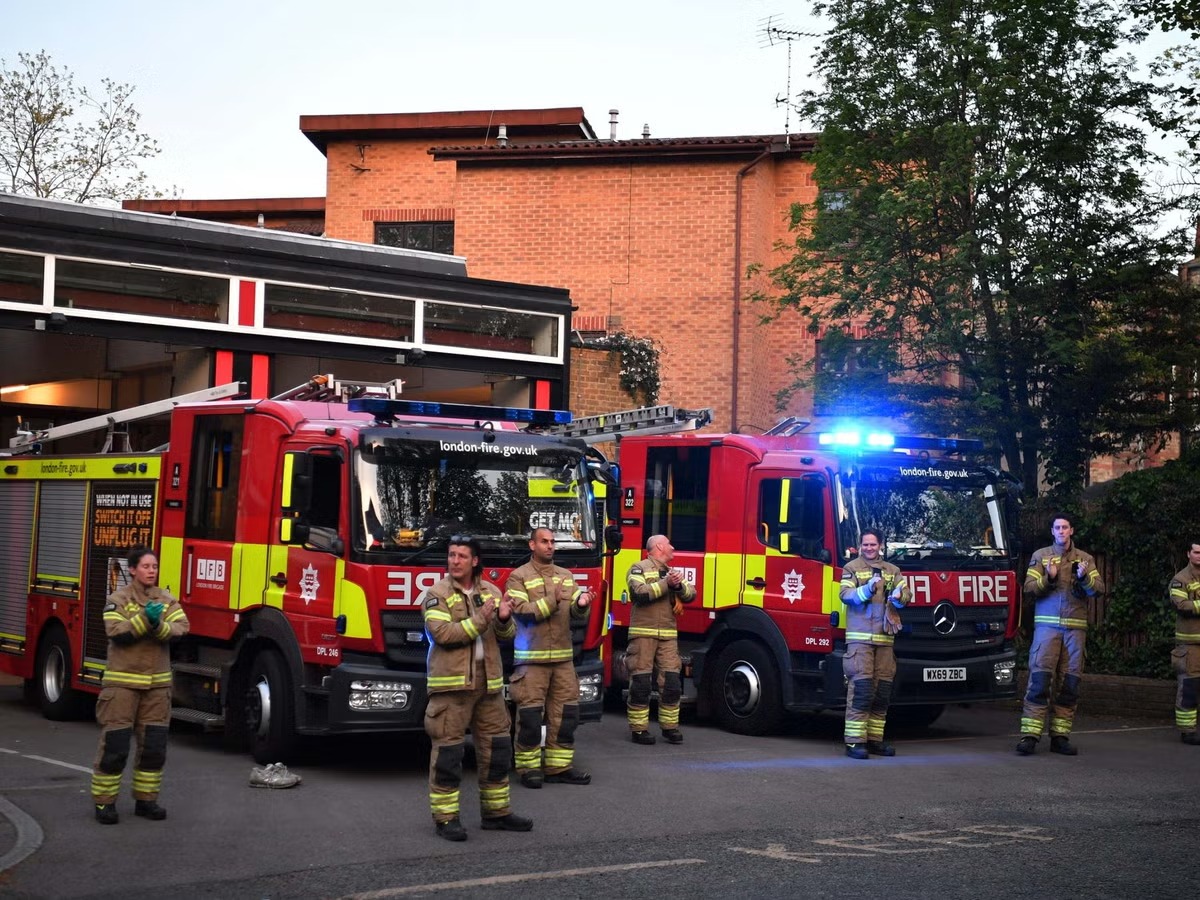The Welsh Government‘s firm rejection of the UK Government’s proposed minimum service levels for fire and rescue services has garnered significant support from the Fire Brigades Union (FBU), underscoring the depth of opposition to what is perceived as a profound encroachment on the union’s longstanding right to strike.
The FBU has extensively outlined the stringent regulations introduced by the UK Government’s Strikes (Minimum Service Levels) Act 2023, which received royal assent on July 20, 2023.
These regulations, targeted solely at England, mandate fire and rescue services to maintain operational capacity during strikes at a level akin to regular working days. Specifically, the legislation dictates that a minimum of 73% of fire appliances must be staffed, and control rooms must operate fully, irrespective of ongoing strike actions.

Fire Service (Credits: The Independent)
The FBU has vehemently condemned these regulations as a severe infringement on workers’ rights, designed to undermine the efficacy of strikes. This sentiment has been echoed by Hannah Blythyn, Welsh Deputy Minister for Social Partnership, who has labeled the Act as an “unworkable intrusion” into devolved matters, firmly stating the Welsh Government’s refusal to implement such measures.
The context of this dispute includes the FBU’s recent negotiation history and industrial action.
Despite a series of strikes in other sectors last year, the FBU successfully resolved a national pay dispute through negotiations, a resolution overwhelmingly endorsed by its members.
However, the new legislation significantly threatens the union’s ability to conduct future strikes effectively. Crucially, the regulations introduce the concept of ‘work notices,’ identifying specific workers required to maintain minimum service levels during a strike.
Non-compliance with these notices exposes workers to potential dismissal, while the FBU faces substantial fines. Union leaders and members alike have widely condemned these measures as draconian.
While the Act currently applies only to England, the Welsh and Scottish governments‘ explicit rejection of the legislation has underscored a significant devolution dynamic in the UK’s industrial relations approach. The Northern Irish administration has similarly opted out of applying the legislation.

Fire Service Trunk (Credits: Wikipedia)
Despite the imposition of these regulations, resistance has emerged within England itself. The FBU cites recent train drivers’ strikes where no work notices were issued by any train operating company as a precedent for defiance.
The Conservative government shoulders primary responsibility for these restrictions, indicating that some senior figures within the fire and rescue service collaborated in designing the new measures. This collaboration has drawn criticism from FBU members, questioning the mandate of the National Fire Chiefs Council (NFCC) in endorsing these laws.
Amid these developments, the Westminster government maintains that the regulations are essential for ensuring public safety during strikes. However, the FBU contends that the government’s genuine concern for public safety would be better demonstrated through sustained investment in the fire and rescue service rather than curtailing workers’ rights.
As the debate rages on, the FBU is rallying opposition to the minimum service levels, urging fire and rescue authorities, MPs, and candidates in the upcoming general election to oppose the legislation.
With Labour committing to repealing the regulations if elected, the battle over minimum service levels and the right to strike in the fire and rescue service is poised to intensify in the next general election.
This development underscores broader tensions between the UK Government‘s drive for restrictions on industrial action and the resistance from unions, devolved governments, and workers.
























